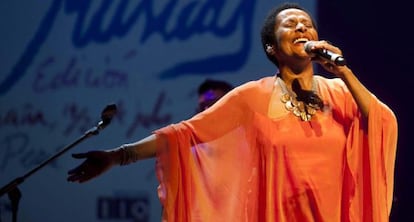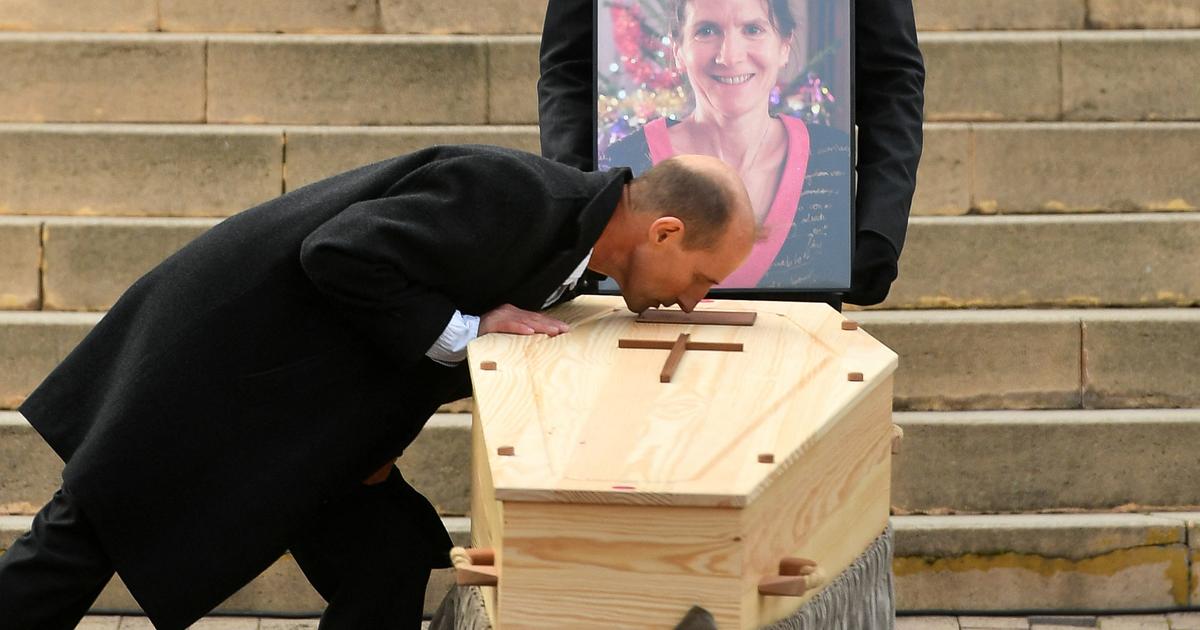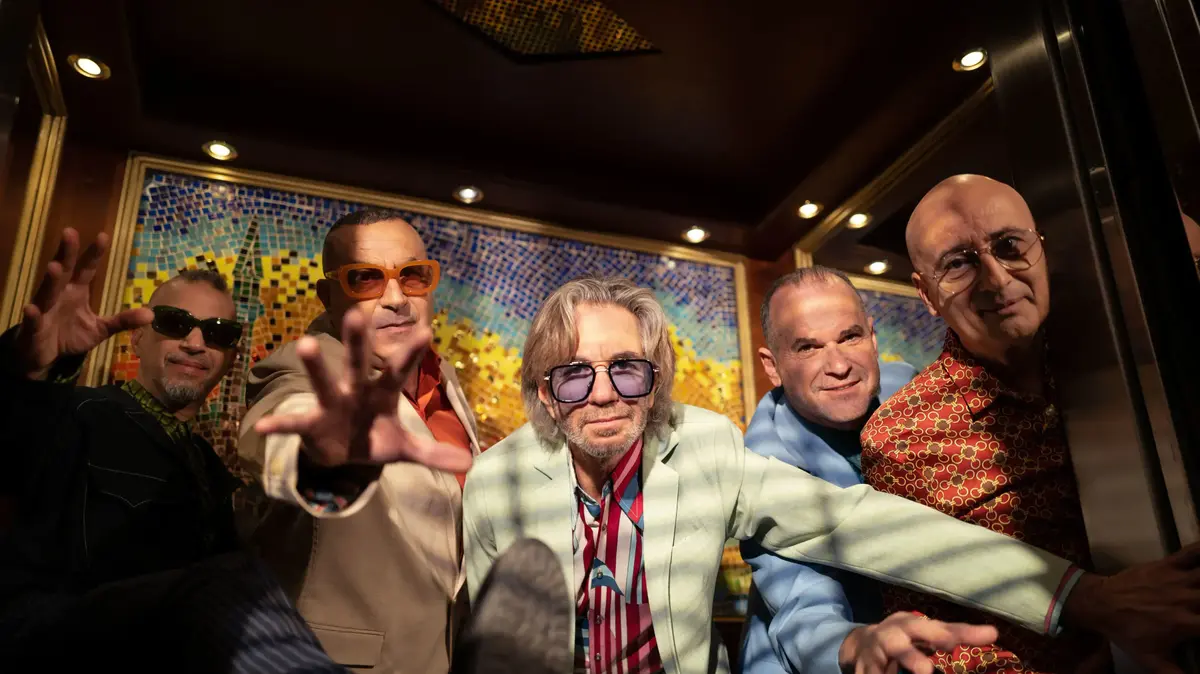Los Saicos, a Peruvian group that was the precursor of punk, in the sixties.
The Peru of these days is, as the Arequipa political scientist Gonzalo Banda described it, "a field of dry straw where several arsonists walk with a match in hand." The presidential elections have left the country in a sore spot. But the wound from which now grudges sprout already existed: the alienation of the Lima elites and racism towards the cholos, the resentments between "the field" (the mountains, the jungle) and the capital, the mistrust between the winners and the losers. displaced from the economic model; all that was already there and it is much more complex and contradictory than the narrative of a struggle between "communism" (or "terrorism") and "freedom", which the
establishment
has tried to impose.
Peruvian. Not that it is a very original speech. It hides, behind fear and Manichaeism, the diversity and history of those who oppose it. Because the spark was there too.
Punk started in a small local in Lima. Or at least that is how a plaque at the crossroads of Miguel Iglesias and Julio C. Tello streets in the Peruvian capital certifies it: “Here the punk-rock movement was born in the world. Los Saicos, 1964 ”. More than a decade before the Ramones, The New York Dolls or the Sex Pistols lit the official fuse of the genre, there were already Los Saicos doing primitive and dangerous things. The
Demolition
theme
begins with something predictable for the time: a bumblebee-sounding surf guitar and some Bo Diddley drum triplets. The surprise comes with the battle cry - "tatatatayayayaya" - and an accelerated rhythm that accompanies the chorus: "Let's tear down the train station."
Demolition
is the garage rock, dirty and fast, with incendiary lyrics that would seal Iggy Pop years later.
Legend has it that some home videos of Los Saicos climbed from the Andes to Detroit to inspire Iggy and his The Stooges.
Seed punk or not,
Demolición
has always embodied a spirit of protest in urban Peru.
Now, the eagerness of some Lima media and leaders to associate the movement of Pedro Castillo, president-elect, with terrorism - what in good Peruvian terms is called "terrucando" - has also consolidated
Flor de retama,
as a symbol of protest
,
a popular huayno from the department of Ayacucho. There, in the Andes of the Peruvian south, in the capital of the region most affected by terrorism since the eighties, Pedro Castillo sang a cappella during his campaign that of: “The Sinchis entering are / In the square of Huanta / Los Sinchis surrounding are / They are going to kill students ”. The song does not speak of the Shining Path: the Sinchis were the paratroopers unit of the Peruvian police specialized in counterinsurgency. In June 1969, at least 20 students were murdered in Huanta, a town in Ayacucho, while protesting against the dictatorship of Juan Velasco Alvarado. The yellow broom flower that grows again every spring symbolizes memory and hope.
From the elegant European halls, but mixed in colonial times with pre-Hispanic sounds came the Peruvian waltz. Stripped of its courtly origin,
El plebeyo
was written in the 1930s by the composer Felipe Pinglo Alva. Already in the forties, Los Morochucos, an emblem of the Peruvian Creole song, popularized this lament for the love censored between social classes: "Lord, why are beings not of equal value?" It is the impossible story of Luis Enrique, “the commoner, the son of the people”, with her, the “aristocrat”, “of noble birth”. A universal drama, the plot of half of the world's soap operas, which is updated with the open contempt of the right for Castillo's voters.
The singer Susana Baca, during a concert in Cartagena (Spain) in 2013.Jose Albaladejo / EFE
On the other side, pride and resentment.
Castillo, a mestizo professor from the poor highlands, has denounced inequalities dragged down from the viceroyalty and prolonged by that kind of new caste system that the market dictates in Creole Peru.
The same discourse that is in the songs of Luis Abanto Morales about the life of the mestizo people of the sierra, the cholos, according to the derogatory nickname of the white and urban elites.
"Do you want me to laugh?
/ While my brothers are beasts of burden / Carrying wealth that others keep ”.
The cholos "like moles, dig and dig."
The marineras, a popular dance throughout the country, also often feature rural workers. In this case, Arequipa, the second city in the country. The return of the hero is the theme of
Montonero Arequipa
, almost a hymn of the province that sounds in all popular festivals. During the civil war of the mid-19th century, the farmer exchanged the hoe for the rifles when the bells rang. After the battle, he returns to "his beautiful brunette." In Arequipa, a land that has given birth to temperaments like that of Mario Vargas Llosa, Castillo's party won by almost 65% of the vote, despite the "ardent" campaign by the Peruvian Nobel Prize in favor of Keiko Fujimori.
Fujimorism has inspired enough songs to justify its own subgenre, but to restore the musical tradition that Alberto Fujimori used in his last presidential campaign - 2000 - with the technocumbia
El Rhythm of the Chinese
, it is worth recovering the wink of a classic:
You are a liar
. Although Los Mirlos speak of the burnt myth of the fatal woman who leads men to perdition, this Amazonian cumbia resonates as a background curtain of the disinformation campaign with which Keiko Fujimori has tried to impose the version of a systematic fraud after the elections. The Caribbean sound of the cumbia rose to the mountains, was lost through the hills and the jungle to go down again to the cities turned into Peruvian chicha. A music of migrants and for migrants who, on their journey to the cities, leaves the idealized town behind. As El Chacalón sings in
I am provincial
: “I am looking for a new life in this city / Where everything is money and there is evil”. Chicha was born in the 60s and always commands the guitar and psychedelic effects pedals of the time.
Exploitation and pain also have their traces in Afro-Peruvian music.
“Maria from being in pain.
Just work.
María only works, only works, only works ”, sings Susana Baca, one of the contemporary exponents of the tradition.
Maria's last name, Landó, is a gender unto itself.
It is not very clear if its black roots are African or pass through the Brazilian sieve.
The starting point is in any case the slave trade during the viceroyalty.
In
Toro Mata it
is celebrated that the bullfighter wins in the ring because that way at least the slaves will be able to eat meat.
You can follow BABELIA on
and
, or sign up here to receive
our weekly newsletter
.















